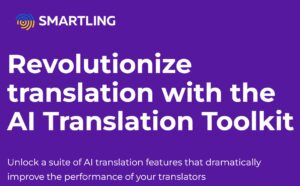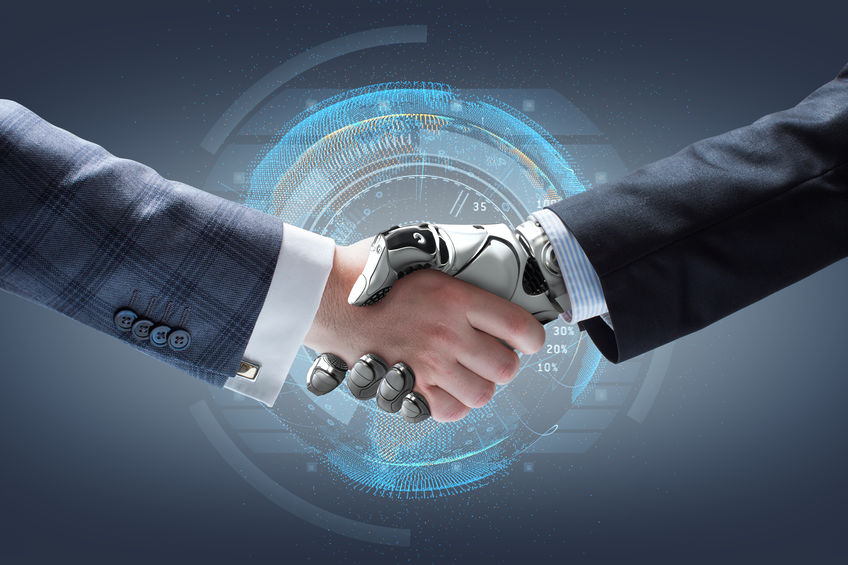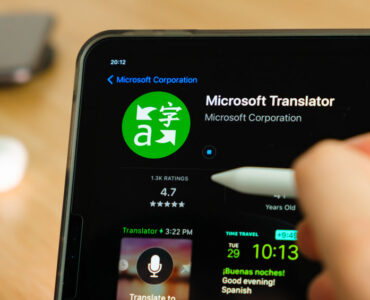by David Grunwald
Machine Translation, referred to as MT, has been around for over 50 years. Once considered a laughing stock that produced hilariously stupid translations, MT has advanced over the years and is now being used copiously. Industry veterans such as myself have been monitoring this progress through a progression of abbreviations: RBMT, SMT, NMT bla bla bla and now AI. It is probably flippant of me to say this is such an anecdotal fashion. After all, many hundreds of scientists and engineers have spent years inventing and developing these technologies. But in reality, people tend to “black box” technology. The inner workings of MT has evolved and the results has been getting progressively better. But at the end of the day, the function stayed the same. You plug in text on one side and get translated text on the other side.
Recently, one abbreviation seems to have trumped all of the others. And I refer to the abbreviation AI. Starting in 2023, and aided by the release of ChatGPT at the end of 2022, it seems that now just about everything is being done by AI. Want to write a letter or school paper? AI. Want to write some software code? AI. Want to create a fake image which looks real? AI. AI has captured the imagination of most of the world, has caused a tectonic shift in stock markets and has revolutionized tried-and-true business models. Is the translation industry one of the industries which will be turned upside down by AI?

At the Slatorcom Amsterdam conference in 2019, way before the AI frenzy and way before ChatGPT was released, an AI guru who is well-known in the translation industry named Dr. Andrew Bredenkamp gave a talk on AI. In the recess following his excellent presentation, I had the privilege of speaking with Andrew mano a mano. When I asked him how MT and AI are connected, his answer was that MT is a subset of AI. And that made a lot of sense to me. So the reality is that AI is not a new technology in the translation industry, but rather an existing technology that has evolved and continues to do so.
Do the big MT Engines Use AI?

Everyone knows and uses the big MT systems: Google Translate, Bing Translator and DeepL to name a few. Are these systems based on AI? Simplistically speaking: YES. Are there AI systems that translate on a much higher level than these systems? Simplistically speaking: NO. Google, Microsoft and the big tech companies are at the forefront of AI and they are undoubtedly using the most advanced AI technology to improve their MT software.
Hitchhiking on the AI Bandwagon
And now we come to solicitations being done today by various companies that are trying to sell AI translation as the magic that will obsolete the traditional translation industry workflow. As if they invented fire. Here is an example of one such solicitation:
Dear team,
Greetings!I hope this message finds you well.
My name is Sanya, and I am reaching out on behalf of Devnagri AI.
We specialize in Translation & Localization of content using GenAI and Humans, and we believe our offerings could significantly benefit your organization as you offer translation in various languages to clientele in UAE.We pride ourselves on quality, innovation, accuracy and speed.
Our team has a proven track record of delivering 1 million+ words everyday, and we are confident that our solutions align well with the needs and goals of your organization.Here’s a brief overview of what we can offer:
- Documents translations– Legal, Medical, Academic, Scanned copies etc
- Website translation on a fly within minutes
- Mobile Application translation
- Conversation AI– Multilingual voicebots, Chatbots and Whatsapp bot.
We understand that your company is committed to Accuracy and speed, and we are excited about the opportunity to contribute to your continued success as currently we fulfill requirements of Governments, Banks, Academic institutions, Hospitals, Legal counsels etc.
Should you be paying money for AI Translation?
If a company is selling proofread (TEP) translations based on AI-generated output, then it may be a good idea. This service level has been around for a number of years. It is referred to as PEMT (Post-Edited Machine Translation). But if a company is charging you money for raw AI-generated translations, I would advise against it. The free translations you can get from Google or DeepL are probably just as good if not the same or better.






No, MT (Machine Translation) and AI (Artificial Intelligence) are not the same, but they are related. MT specifically refers to using software to translate text from one language to another, while AI encompasses a broader range of intelligent tasks, including MT. AI is not the new MT; rather, AI powers modern MT systems, making them more accurate and efficient through advancements like neural machine translation (NMT).
Thanks Morris for that insightful information. I should mention that the blog post says that MT is a subset of AI, which aligns with your comments.
MT (Machine Translation) and AI (Artificial Intelligence) are not the same, though MT is a subset of AI. MT refers specifically to automated translation between languages, while AI encompasses a broader range of technologies, including machine learning, natural language processing, and more. AI enhances modern MT systems, making them smarter and more accurate, but AI itself is much more than just translation. AI is not the “new” MT, but it has significantly improved MT capabilities.